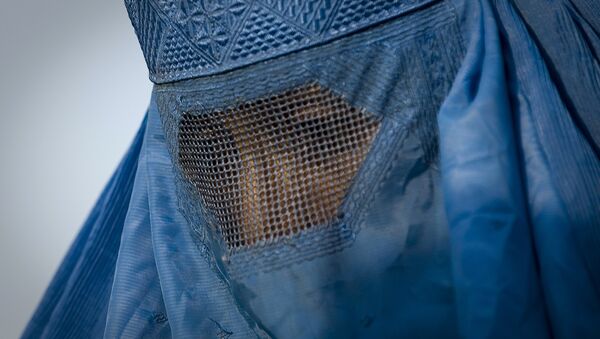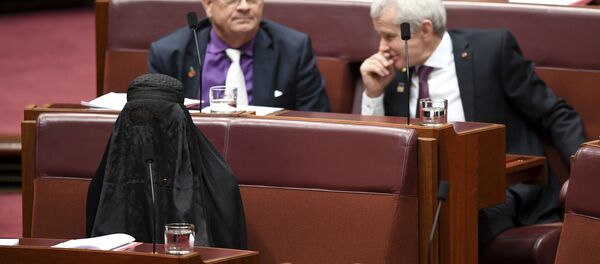Although the legislation was not specifically directed at Muslim women, it is perceived to be targeted at the conservative clothing worn by some Muslim women. Violators of the law could face a fine as high as $180.
Even with the surge of migrants and refugees in Europe in 2015, there are only around 700,000 Muslims in Austria, and of them, only an estimated 100 to 150 Muslim women — 0.002 percent of the population — wear face-covering veils.
Other European countries have introduced similar bans, including France, Belgium, the Netherlands and Bulgaria.
According to the ruling centrist government of Austrian Chancellor Christian Kern, "Acceptance and respect of Austrian values are basic conditions for successful cohabitation between the majority [of the] Austrian population and people from third [world] countries living in Austria," the Telegraph reported.
On Saturday, a woman wearing a niqab was seen being told by police officers in Zell am See, a city south of Salzburg, to remove her veil.
In the past, German Chancellor Angela Merkel has implied that she supports the implementation of a similar law in Germany, saying, "Our [German] law takes precedence over codes of honor, trial or family rules and over sharia law."
Some Muslim groups, including the Austrian Islamic Religious Community (AIRC), have vocalized their concern over the ban. According to Carla Amina Bhagajati, a member of the AIRC, the "handful" of fully-veiled women in Austria "are [now] criminalized… and restricted to their homes."
On Sunday, around 300 protesters in Vienna wore masks during a demonstration against the ban.
"It's horrible, I think it's also unconstitutional, for start. It's racist and it encourages police randomness. I am very concerned about this law because I think this is going into a completely wrong direction," one protester said, according to euronews.com.
The new law was enforced just a couple weeks before a general election in which the Freedom Party of Austria, a right-wing and nationalist conservative political party with anti-migrant beliefs, is predicted to place second or third. A Freedom Party win could potentially allow it to form a coalition government with the conservative Austrian People's Party, overturning the Social Democratic Party, the current leading coalition partner.




